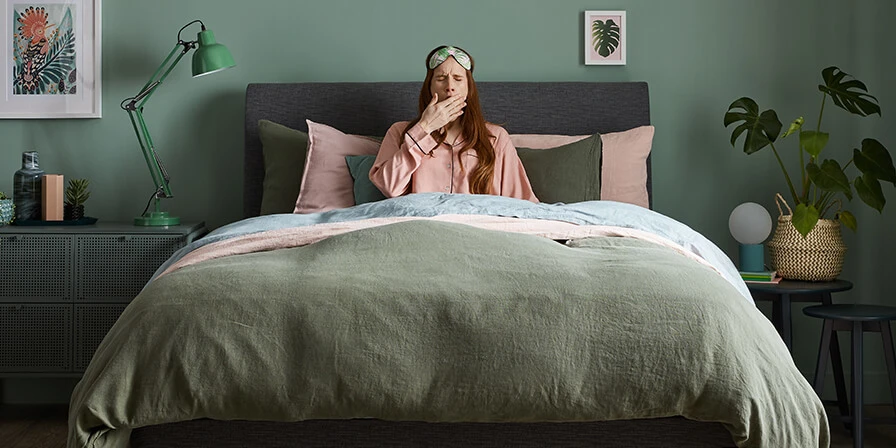sleep peacefully with our 10-year guarantee, delivered in 48 hours.

Download a new browser







try it out for a year

choose from 7 rolled mattresses

delivered in 48 hours
shop by size
shop by range
UK's most trusted sleep brand

Handmade in the UK

multi award-winning mattresses
shop by type
sleep advice
UK's most trusted sleep brand

multi award-winning mattresses

rigorous safety testing
shop by type
sleep advice
UK's most trusted sleep brand

FREE UK delivery over £49

rigorous safety testing







try it out for a year

choose from 7 rolled mattresses

delivered in 48 hours
shop by size
shop by range
UK's most trusted sleep brand

Handmade in the UK

multi award-winning mattresses
shop by type
sleep advice
UK's most trusted sleep brand

multi award-winning mattresses

rigorous safety testing
shop by type
sleep advice
UK's most trusted sleep brand

FREE UK delivery over £49

rigorous safety testing
 free delivery over £49
free delivery over £49
 shop now, pay later with Klarna
shop now, pay later with Klarna
Healthy Sleep
4 min read
written by Simon Anthony
updated 27.11.2023

Did you know having a late night could be the reason you keep craving more food than usual? Sleep plays a vital role in regulating hormone levels, including the hormones leptin and ghrelin, which are integral to hunger and appetite, and a disruption to the production of these hormones can lead to overeating.
Sleep loss has also been linked to a weakened immune system and it affects your brain functions and memory.
If your bedtime varies by more than one hour, you are likely to consume 245 more calories in a week. According to the Sleep Foundation, studies have found that insufficient sleep increases overeating and unhealthy food choices because of the disruption to our hormone's leptin and ghrelin.
This is why sleep loss is linked to weight gain and a higher risk of obesity. Maintaining a regular sleep routine is crucial to avoid this.
Silentnight’s sleep expert, Dr Nerina Ramlakhan, backs this advice. Going to bed between 7pm and 11pm will increase the cravings for vegetables, fruits, high-fibre carbohydrates, lean proteins and heart-healthier fats. If you have trouble falling asleep, Dr Nerina says:
"Winding down properly before getting into bed is crucial to helping you sleep better. You are more likely to access efficient deep sleep if you allow your body and mind to relax than if you rush to bed feeling anxious – so even delay going to bed if necessary".
There are lots of other things that can be impacted by a lack of sleep, such as your immune system, your brain functions and your memory, so sticking to roughly the same bedtime each night has a lot of physical benefits.
You might be a night owl or a morning bird, but everyone needs a consistent bedtime. Depending on your age, there’s a minimum amount of sleep you should try to get every night. Factor in when you need to wake up, and you’ll work out your ideal bedtime.
Experts recommend adults get between 7 and 9 hours of sleep every night. To find out what amount is right for you, practice falling asleep and waking up naturally for a few days. Use a sleep tracking app or write in a sleep diary to see what your average sleep time is. That will help you figure out when you should go to sleep.
During this critical period of our development, sleep is important for children to grow up healthy. Babies require the most sleep, and when they’re less than three months old a newborn might need as much as 17 hours a day. Creating a routine is important to signal to children when it’s time to go to sleep. At a young age they might not realise when they’re tired.
0 to 3 months = 14 to 17 hours sleep
4 to 11 months = 12 to 15 hours sleep
1 to 2 years = 11 to 14 hours sleep
3 to 5 years = 10 to 13 hours sleep
6 to 13 years = 9 to 11 hours sleep
Babies and children also don’t compress all their sleep into a single night. Their routine needs to include naps throughout the day.
Teenagers don’t need as much sleep as children, but they still need more than adults. Ideally, a teenager should get between 8 and 10 hours every night. If they’re getting up early for school, a good bedtime would be anywhere between 9 and 10:30pm.
Once we get over the age of 65, it’s normal for our sleep pattern to become disrupted. You might find yourself needing less sleep, despite the recommendation still being the same 7 to 9 hours that it is for adults. It’s also more common to go to sleep earlier and wake up earlier.
Also called sleep deficit, this happens when you consistently don’t get enough sleep. That might be because of insomnia, going to bed too late, or night time disruptions. Like any debt, it can be repaid by sleeping longer the next day or napping at the weekend, but if the deficit gets too big it can cause serious health problems.
Regular sleep deprivation has been linked to an increased risk of diabetes, hypertension, heart disease and strokes. Prolonged sleep debt also affects memory and cognitive functions like problem solving.
Consistently going to bed too late and failing to get enough sleep has been linked to an increased risk of weight gain, obesity, diabetes, hypertension, heart disease and strokes. While sleep debt can be repaid with naps and earlier nights the next day, routinely going to bed too late has short and long-term health impacts. Adults should aim to get at least 7 hours sleep every night.
It's also important to prioritise sleep quality. To learn about the health benefits of deep sleep, read Silentnight’s the power of deep sleep.
Add another item to compare
Add another item to compare
Add another item to compare
Add another item to compare